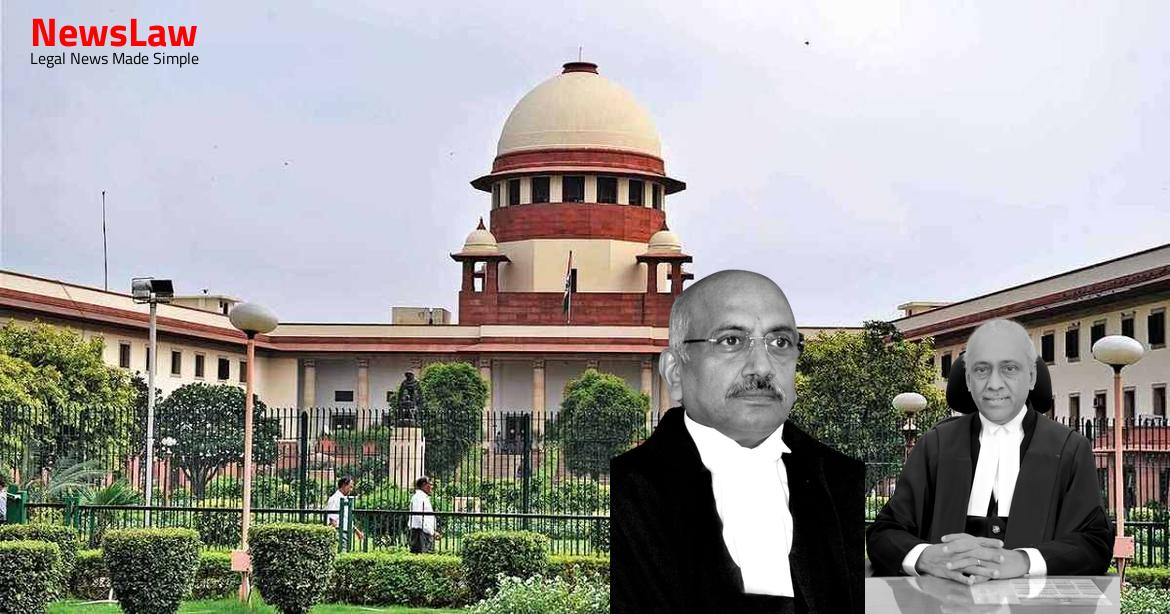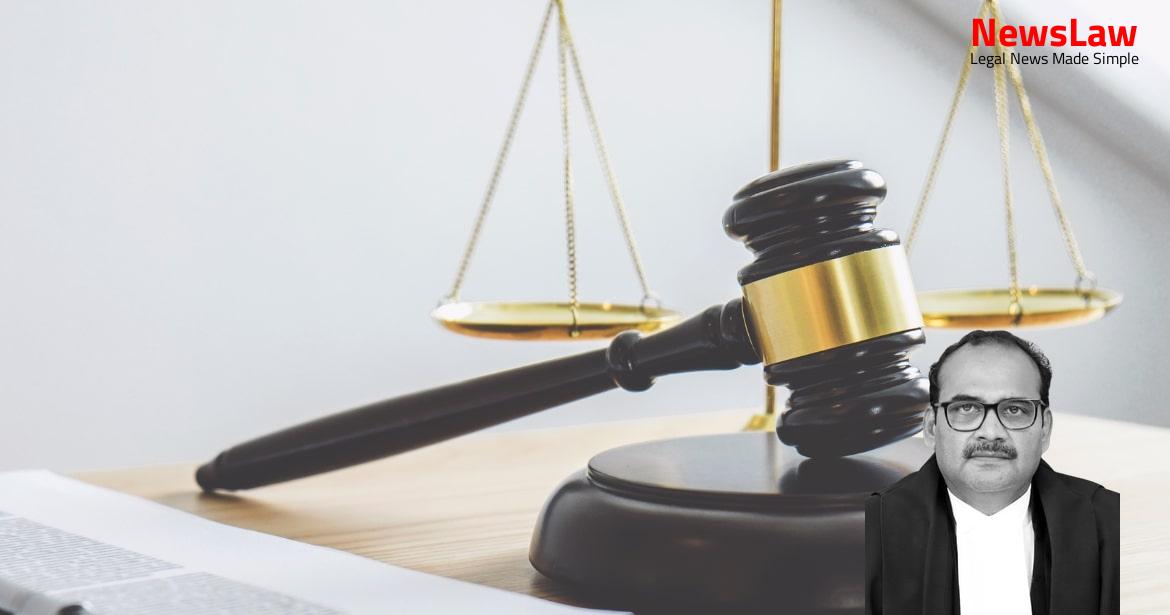In the legal case of Ravin v. Prysmian, a dispute arose between the parties regarding the interpretation of the Joint Venture Agreement (JVA). The Respondents, Ravin, and the Petitioners, Prysmian, engaged in arbitration with complex issues surrounding breach allegations and jurisdiction. Follow the intricate legal proceedings as the parties navigate through the challenges of international arbitration and agreement interpretation.
Facts
- The Joint Venture Agreement (JVA) was entered into by Appellants and Ravin with Prysmian Cavi E Sistemi SRL, where each party claimed material breaches by the other.
- Appellants filed a statement of defence and counter claims after being informed of their right to challenge the appointment of the sole arbitrator.
- A ‘Control Premium Agreement’ was signed where Appellants received €5 million as a control premium for Ravin’s share capital acquisition.
- A request for arbitration was made by Prysmian Cavi E Sistemi SRL under the JVA’s clause 27 due to disputes between the parties.
- The LCIA appointed Mr. David Joseph QC as the sole arbitrator to resolve the dispute.
- Various procedural orders were issued by the arbitrator for document production.
- Appellants challenged the enforceability of four final awards made in London under the LCIA Rules through the Bombay High Court.
- The scope of the first award was defined to focus on JVA interpretation and jurisdiction, not on the merits of the claims or counterclaims.
- The arbitrator clarified his independence from any conflicts of interest alleged by Appellants.
- Appellants waived their right to challenge the arbitrator’s appointment, leading to the continuation of the arbitration process.
- The Respondents manufactured telecom cables, contributing over 85% of sales.
- The Respondents did not appoint a valuer as required, leading to KPMG refusing the valuation.
- Deloitte was appointed as the valuer in place of KPMG.
- The Tribunal found the Respondents to be the Defaulting Party under clause 23.7 of the JVA.
- The Respondents’ attempt to alter their case and claim direct sales as a breach of Clauses 8 and 20 was dismissed.
- The Final Award addressed the valuation of shares in Ravin and ownership transfer.
- The Third Partial Final Award issued specific orders regarding the transfer of shares and actions to be taken by specific individuals.
- The Tribunal noted the Karias’ decision to no longer be represented by their legal counsel.
- The Respondents were prohibited from exercising any rights under the JVA and from representation on the Board of the Company.
- The Tribunal reserved the matters related to costs of arbitration.
- Counter claims made by the Respondents were dismissed by the arbitrator.
Also Read: Legal Analysis of Property Occupation in Insolvency Resolution
Issue
- The scope and meaning of the words in Clause 21.1 were questioned regarding the restriction on investing, acquiring, or participating in the Cable Business in India.
- The Tribunal found that the Agency Agreements did not involve an injection or exchange of capital or know-how.
- The agreements were deemed as classic sales distribution/agency agreements where an agent receives a sales commission for promoting and concluding specified types of sales in India.
Also Read: Legal Analysis on Physical Ability in Rape Case
Arguments
- The parameters in Section 48 of the Arbitration Act for resisting enforcement of foreign awards are narrow.
- Court cannot go into the merits of a foreign award.
- Breach of the Joint Venture Agreement (JVA) was not evidenced.
- The appointment of Ms. Farise to ACPL was allegedly carried out covertly.
- Public policy must be understood in the narrow sense as per Renusagar.
- No grounds for breach of natural justice or prejudice were found in the facts.
- No element in the awards that would shock the conscience of the Court under Section 48.
- Ordinary parlance does not align with the conclusion of a contract of sale of goods as investing in the Cable Business in India.
- The Respondents’ primary submission that the contracts of sales of cables in India constituted investment, acquisition, or participation in the Cable Business was not supported by the JVA.
- The first point made by the Respondents was found to be unsubstantiated.
- The petitioners argued that the tribunal failed to address their counterclaim regarding the incorporation of Jaguar Communication Consultancy Services Private Limited, which they claimed was in breach of the non-compete provisions of the Joint Venture Agreement (JVA).
- They further contended that the tribunal did not determine their counterclaim about the respondent’s attempts to oust the petitioners from Ravin, which they argued was a JVA breach.
- The petitioners also claimed that the tribunal neglected their counterclaim regarding the respondent’s clandestine efforts to register the Ravin trademark, another alleged JVA violation.
- It was asserted that the tribunal’s disregard for expert witnesses’ admissions about ACPL’s competition with Ravin, and the failure to produce documents related to ACPL, tainted the award.
- The petitioners highlighted the tribunal’s application of the maxim de minimus non curat lex to ACPL, suggesting bias and inconsistency in breach assessment.
- They raised concerns about the differing interpretations of clause 21 of the JVA in the Partial Final Awards, deeming them inconsistent and irreconcilable.
Also Read: Legal Analysis on Admissions and Document Consideration in Insolvency Case
Analysis
- Clauses 23.1 and 23.2 require giving of a Determination Notice of an Event of Default by the Non-Defaulting Party.
- Clause 23.3 mandates the Non-Defaulting Party to give the Defaulting Party a 60-day Rectification Period to rectify the Event of Default.
- The Non-Defaulting Party must cooperate in good faith and act fairly within the agreement.
- Provisions regarding enforcement of foreign awards under the New York Convention and Foreign Awards Act are outlined.
- The Award may be enforced in any appropriate jurisdiction, and in India, the legislative provisions of the Arbitration and Conciliation Act apply.
- Criteria for determining conflict with public policy of India are specified under Explanation 1 and 2.
- The judgment interprets provisions similar to those in the Foreign Awards Act, 1961.
- The JVA clauses that were considered in the analysis include Clauses 12, 8, and 20.1.2.
- The Respondents interfered with the proper functioning of the CEO by not implementing a resolution empowering the CEO to operate bank accounts, which was a material breach of the JVA.
- The appointment of CFO was vetoed by the Respondents, but it was not considered a material breach.
- There was evidence of the Respondents creating false records and denying access to HR and payroll data systems of the company, which was a breach of the JVA.
- The Tribunal did not find credible evidence of serious adverse impact caused by the actions of the Respondents.
- Certain actions of the Respondents led to a toxic atmosphere at the office, affecting the safety of Claimant nominees.
- The Respondents were in breach for inciting employees, not preventing a strike, and supporting insubordination.
- Notice was given to rectify breaches, but the Respondents did not rectify any within the specified period.
- A merger between Prysmian SA and Draka Group resulted in acquisition of ACPL, an Indian company, leading to further complexity in the case discussion.
- Direct sales in India were considered as separate activities not constituting an investment or participation breach.
- The principles laid down in ONGC Ltd. v. Saw Pipes Ltd. would govern the scope of such proceedings.
- The district court referred to the Federal Arbitration Act and held that the review of a panel decision is ‘grudgingly narrow’.
- The U.S. Court of Appeals for the 5th Circuit analyzed the New York Convention in Karaha Bodas Co., L.L.C v. Perusahaan Pertambagan Minyak and emphasized the structured framework it provides for the review and enforcement of international arbitral awards.
- The New York Convention mandates different regimes for the review of arbitral awards in different countries.
- The English language text of Article V of the Convention provides that Contracting States ‘may’ refuse recognition of an award.
- The U.S. cases show a ‘pro-enforcement bias’ under the New York Convention, placing the burden of proof on parties objecting to enforcement.
- The Convention does not sanction second-guessing the arbitrator’s construction of the parties’ agreement.
- The New York Convention seeks to simplify and improve the procedure for obtaining recognition and enforcement of foreign awards.
- Courts in other countries have secondary jurisdiction and can only decide whether to enforce the award in that country.
- In Ssangyong Engineering & Construction Co. Ltd. v. National Highways Authority of India, the court referred to previous judgments to determine the challenge to a foreign award under Section 7 of the Foreign Awards Act.
- A party defending against enforcement of an arbitral award bears the burden of proof.
- The application of public policy in the New York Convention and the 1996 Act is limited to non-recognition or enforcement of foreign awards.
- The Geneva Convention of 1927 had certain defects which the New York Convention aimed to remedy by providing a more effective method for recognition and enforcement of foreign awards.
- The U.S ultimately acceded to the New York Convention in 1970 and implemented its accession with specific regulations.
- The New York Convention does not require Contracting States to deny recognition to arbitral awards.
- In proceedings for enforcement of a foreign award under the Foreign Awards Act, the court’s scope of enquiry is limited to grounds mentioned in Section 7 of the Act.
- The court has discretion to allow enforcement even if one or more grounds for refusal of enforcement are made out, but the discretion is narrow.
- The U.K. Supreme Court in Dallah Real Estate and Tourism Holding Co. v. The Ministry of Religious Affairs, Government of Pakistan outlined the discretion of the Court to enforce foreign awards.
- Redfern and Hunter on International Arbitration state that Redfern and Hunter on International Arbitration state that the court has no discretion but to recognize and enforce a New York Convention award unless specific grounds for refusal are proven.
Decision
- The dispute shall be settled exclusively by arbitration under the Rules of Arbitration of the London Court of International Arbitration (LCIA).
- The arbitrator must be of a neutral nationality, i.e., from a nationality and origin different from any of the Parties.
Case Title: VIJAY KARIA Vs. PRYSMIAN CAVI E SISTEMI SRL (2020 INSC 178)
Case Number: C.A. No.-001544-001544 / 2020



